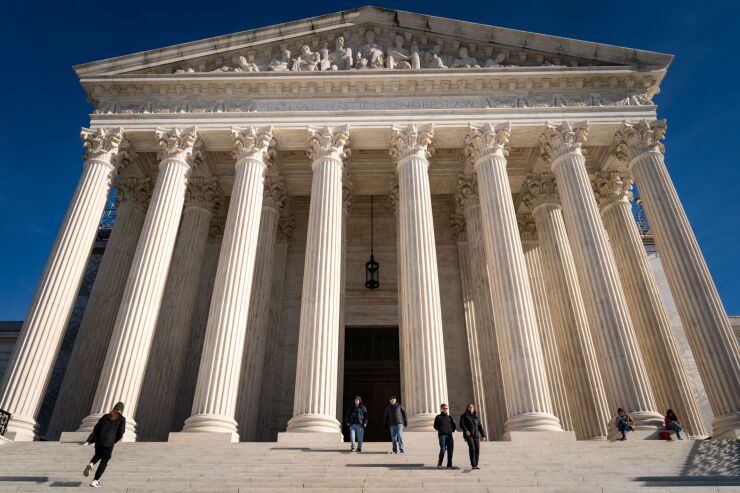The U.S. Supreme Court has upheld the constitutionality of the mandatory repatriation tax under the Tax Cuts and Jobs Act. The June 20 decision is widely reported as a "narrow" decision, meaning the holding is confined to a narrow issue, not that it was a close decision. In point of fact, the court ruled 7-2 in favor of the government.
The Moore v. United States case focused on a tax provision in the 2017 Tax Cuts and Jobs Act that reduced the corporate tax rate and included a one-time tax on earnings of U.S. shareholders in some foreign countries. Prior to the TCJA, companies could defer indefinitely paying U.S. taxes on foreign earnings by parking the profits abroad.
The 7-2 decision upheld the lower courts' decision; however the Supreme Court emphasized that the decision was very narrow and does not have broader implications for future cases on the wealth tax.
When the Moores contested the constitutionality of the provision as it affected their $40,000 investment in an Indian corporation, they had no idea that it would generate the kind of interest that it has. They simply wanted to avoid the $14,729 MRT. They argued that the tax is unconstitutional since it applies to unrealized income and that it applies retroactively to past earnings that are under the 16th Amendment, which requires that income be realized before it can be taxed.

A team of BakerHostetler attorneys, led by partners Andrew Grossman and Jeffrey Paravano, represented the Moores at the Supreme Court. They argued that realization is required for federal taxation of income, and that the MRT was a tax on property, not income.
The Supreme Court concluded that it did not need to resolve the dispute over realization, instead leaving those "potential issues for another day."
Paravano, firmwide chair of BakerHostetler's tax group and managing partner of its Washington, D.C., office, said: "Although the five-justice majority determined it need not resolve the issue of realization in Moore, it also specifically noted that the Supreme Court in Macomber stated that 'income requires realization.' Further, Justice Barrett's concurrence in the judgment, joined by Justice Alito, stated that realization may take many forms, but our precedent uniformly holds that that it is required before the government may tax financial gain without apportionment, and Justice Thomas's dissent, joined by Justice Gorsuch, states that '16th Amendment income includes only income realized by the taxpayer.'"
"Thus, the majority opinion recognizes that prior Supreme Court precedent requires realization, and four justices in Moore recognize that realization is a requirement for federal taxation of income without apportionment," he continued. "The opinion also notes that nothing in the opinion should be read to suggest that Congress could tax both an entity and its owners on the same income, and that the Due Process Clause 'proscribes arbitrary attribution' — which gives tax practitioners food for thought on whether any current taxes might violate that holding."
The American Institute of CPAs stated: "The decision by the Supreme Court to uphold the lower courts' ruling effectively maintains the status quo for tax policy pertaining to unrealized gains as income."





